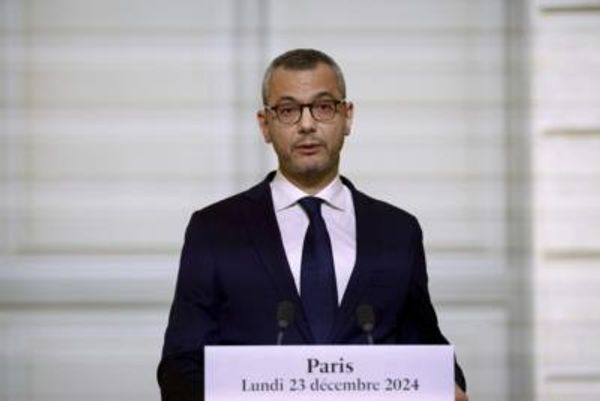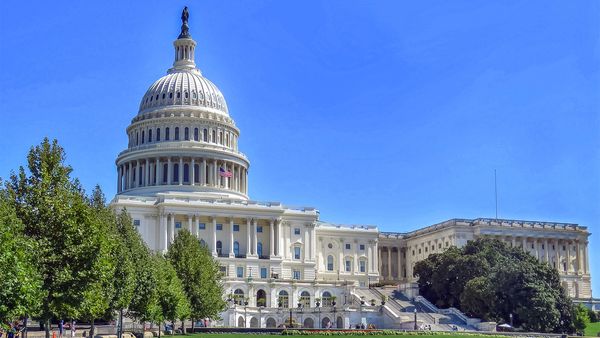
In two months, the Australian whistleblower David McBride will face a jury in a courtroom in Canberra. His court date will coincide with the start of another parliamentary sitting week. Across Lake Burley Griffin, the Albanese government will talk up its support for transparency, integrity and whistleblower protections. In the ACT Supreme Court, a whistleblower will go on trial.
McBride, a former army lawyer who served two tours in Afghanistan, is alleged to have leaked documents to the ABC that detailed allegations of war crimes committed by the Australian Defence Force. Several years before the Brereton report found credible evidence for these horrific claims, and well before the Federal Court found that former soldier Ben Roberts-Smith had murdered unarmed civilians while serving in Afghanistan, McBride’s whistleblowing is alleged to have led to ABC’s “Afghan Files” exposé.
The ABC’s important public interest journalism revealed allegation after allegation of misconduct; if proved, they would amount to war crimes. Horrific accounts of unarmed civilians shot and killed, detainees murdered when posing no threat, and dead people maimed. It was information that Australians deserved to know.
Yet in mid-November, McBride will be the first person on trial in relation to war crimes in Afghanistan. He is not an alleged war criminal, but a whistleblower charged with breaching secrecy offences by disclosing sensitive files to the ABC. In his whistleblowing defence, abandoned on the morning of a hearing late last year after an extraordinary last-minute national security intervention by the government, McBride claimed that he had spoken up internally first, and then to oversight bodies. He went public, he said, as a last resort.
He is not the only one. Another whistleblower is also on trial. Richard Boyle worked at the Australian Tax Office, where he grew concerned about unethical debt-recovery practices. He spoke up internally and to the tax ombudsman. Again, as a last resort, he went public — also to the ABC, and also Fairfax newspapers, as part of a joint investigation. Vital public interest journalism underpinned by brave whistleblowers.
It is unconscionable that two whistleblowers face trial for telling the truth about wrongdoing. The Albanese government entered government with commitments around integrity and transparency. The establishment of a National Anti-Corruption Commission, a press freedom roundtable and initial whistleblower protection reforms are positive steps. But the government’s failure to intervene in these Coalition-era cases undermines this good work.
Two people can stop these chilling prosecutions. Attorney-General Mark Dreyfus can discontinue a prosecution under the Judiciary Act, reflecting his ultimate responsibility to Parliament for Australia’s criminal justice system. Dreyfus used this power to end the unjust prosecution of Bernard Collaery, who helped expose Australia’s espionage against Timor-Leste. The Commonwealth director of public prosecutions (CDPP), as the head of the institution running these cases, can also stop them at any time if they determine they are no longer in the public interest. (The role is vacant — there is an acting CDPP in place until Dreyfus appoints a new one.)
In an open letter published today in four newspapers, a group of more than 70 civil society organisations, unions, journalists, lawyers, human rights defenders, advocates and former judges have called on the government to end the prosecution of whistleblowers and fix the laws to ensure these cases can never happen again. The Human Rights Law Centre, for which I work as a senior lawyer, is among the signatories.
The letter underscores the depth and breadth of opposition to these prosecutions. Whistleblowers should be protected, not punished — and certainly not prosecuted. The cases are Coalition-era baggage that the Albanese government, for now, refuses to jettison. But for every day that these two whistleblowers are on trial, on trial for telling the truth, Australia’s democracy is weakened.
It would send a terrible message to potential whistleblowers for McBride to face trial. It would send an even bleaker one should he be convicted, and possibly imprisoned.
Is Australia the sort of nation that puts our truth-tellers on trial? The type that locks up whistleblowers who call out government wrongdoing? Unless the attorney-general or the Commonwealth director of public prosecutions act, in two months we’ll find out.
Should whistleblowers be protected under legislation? Let us know by writing to letters@crikey.com.au. Please include your full name to be considered for publication. We reserve the right to edit for length and clarity.







